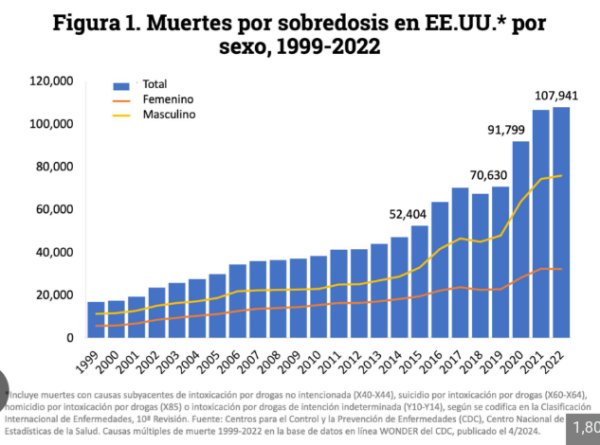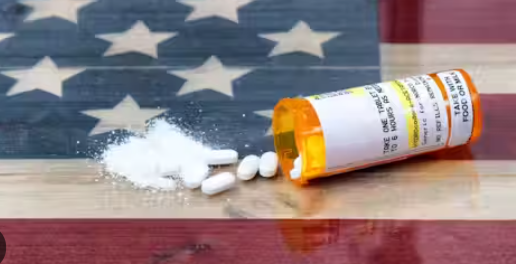The drug problem in the United States is a major challenge affecting millions of people and their communities. Over the years, substance abuse has caused a public health crisis, with undeniable social, economic, and political consequences. Drug addiction does not discriminate, as it can affect people of any background, age, and gender.
Particularly alarming is opioid abuse, which has reached critical levels in recent years. Prescription painkillers and heroin have become key factors in the increase in deaths, ranking as one of the leading causes of death in the country. This problem not only affects individuals but also has a devastating impact on families and communities at large.

There are examples of people who have faced this problem and found the path to recovery. Brandon, a man who suffered from addiction, commented: “I was 16 years old when I entered this world of drugs. Now I’m 26 years old, and today I can say I’m a survivor of addiction. At first, I was drawn to drugs as a way to escape all the problems I faced with my girlfriend, the stress of school, and when I went out with my friends to parties. I was offered drugs, but I never accepted them. But as soon as I started having problems, I decided to accept them to forget them. Although the initial enthusiasm soon turned into a dependency that negatively affected my relationships and my work life, I lived with my father, Westbrook. He was a man who worked a lot and I couldn’t count on his support since he was always working. But an aunt who lived in Old Saybrook and my grandparents also encouraged me to seek help at a rehabilitation center, which allowed me to understand the effects of substances on my life,” Brandon commented.
The key to Brandon’s journey was family support, which, despite the ups and downs, played a vital role in his recovery. Over time, he dedicated himself to healthy activities such as sports and attending church to read Bible courses, which gave joy and purpose to his life. Today, Brandon reflects on his transformation and emphasizes that, despite the challenges, living drug-free is a valuable experience. “Today I realize how precious life is, and I have more reasons to fight than my daughter and my wife,” Brandon said.
This testimony resonates with a message of hope: asking for help is not a sign of weakness, but a crucial step toward a better life. The drug problem in the United States is multifaceted and requires a comprehensive response. A combination of prevention, education, and treatment, with community support, is essential to address this crisis effectively and sustainably. Recovery is possible and worth fighting for.


